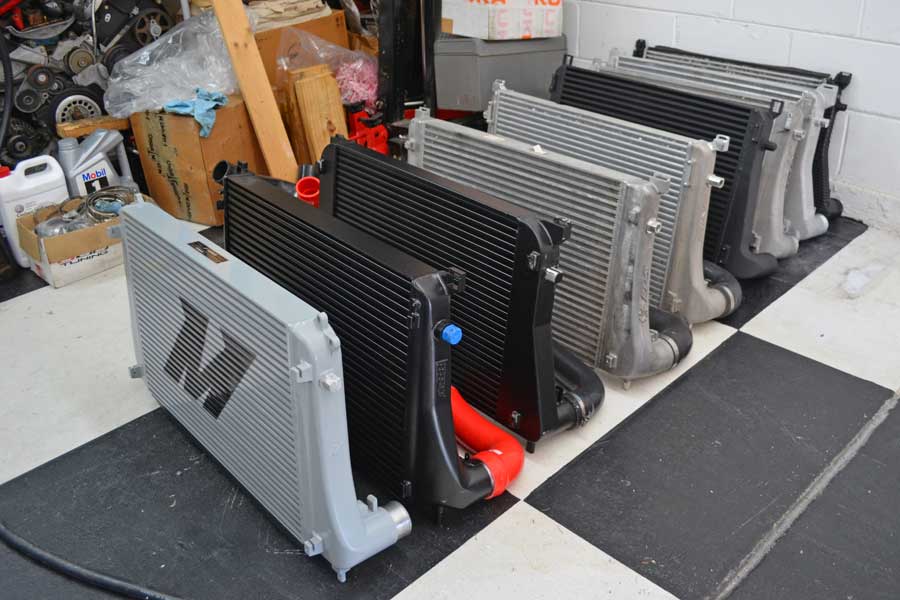Background:
Evaluating performance data of intercoolers directly is my preference. Despite going to some great lengths to do this the number of intercoolers that are available and the challenges of obtaining samples makes testing all intercoolers that could be installed on my GTI infeasible.

Use of data from other owners is an alternate method of evaluation but has it’s own challenges. Issues like dissimilar modifications, primarily the turbocharger, insufficient data to build confidence, and poorly documented operating environment conditions make this method of evaluating frequently unsuitable.
Owners of a pair of IS38 equipped cars with tunes that boost similar to my GTI posted data logs of their cars using the Burger Motorsport MQB intercooler. Ambient temperature was available and between the two there were ten good data points available, enough to make a fair comparison with results I have measured using my GTI.
Analysis:
Intake air temperature (IAT) while accelerating under boost in third gear is a measure I am interested in. Evaluating this measure at an engine speed of 6000 RPM is what I use for comparing intercoolers that I test with my car and this data was available for the BMS IC on these other cars. The average IAT over ambient air temperature is compared between the Integrated Engineering intercooler that I have tested with my GTI and the Burger Motorsports IC data from the other owners.
The box plot chart below shows the averages next to the X:

Conclusion:
The Burger Motorsport intercooler shows an average intake air temperature rise of approximately 20 degrees Fahrenheit at 6000 RPM during a third gear pull with an IS38 turbocharger operating with an aftermarket tune. By comparison the Integrated Engineering intercooler, which has performed the best on this test of the intercoolers I have tested, shows a temperature rise of approximately 8 degrees Fahrenheit.
Based on these result the BMS intercooler is not in contention for use on my GTI.
